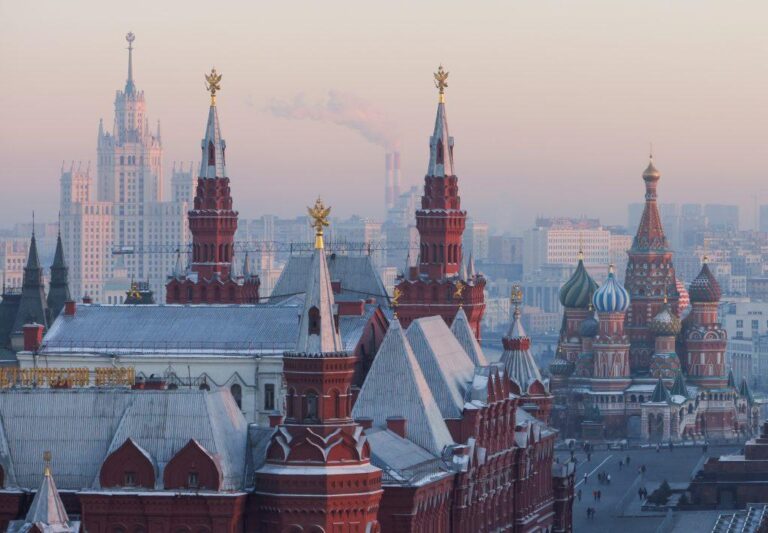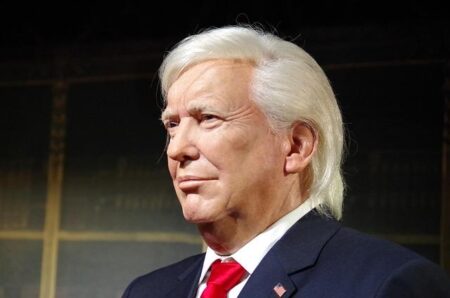As tensions escalate between Israel and Iran, analysts are closely examining the broader geopolitical ramifications of the conflict. Among the pivotal questions is whether Russia stands to gain from the unfolding hostilities in the Middle East. With Moscow’s complex alliances and strategic interests in the region, the potential impact on Russia’s diplomatic and military positioning is under intense scrutiny. This article explores the multifaceted dimensions of the Israel-Iran conflict and evaluates the extent to which Russia might benefit from the turmoil, drawing insights from experts and recent developments reported by France 24.
Russia’s Strategic Gains Amid Middle East Turmoil
As tensions escalate between Israel and Iran, Russia is quietly positioning itself to capitalize on the shifting geopolitical landscape. The ongoing conflict diverts Western focus and resources, creating openings for Moscow to strengthen its influence across the Middle East. Leveraging long-standing ties with Syria and Iran, Russia has enhanced its diplomatic leverage, positioning itself as an indispensable mediator in the region. Strategically, this turmoil enables Russia to:
- Expand military presence through arms deals and base agreements.
- Deepen energy partnerships, particularly in oil and gas markets.
- Assert a counterbalance to U.S. and European influence in regional conflicts.
Further, Russia’s role as a broker in ceasefire negotiations and its open channels with multiple regional players allow it to project power without direct engagement. This approach not only secures Moscow’s foothold but also positions it as a key power broker at a time when traditional Western allies face increasing challenges. Below is a concise overview of Russia’s key strategic moves amid the Israel-Iran conflict:
| Strategic Area | Russian Action | Expected Outcome |
|---|---|---|
| Military Presence | Strengthening bases in Syria | Enhanced regional power projection |
| Energy Sector | Increasing oil supply agreements | Market influence and revenue boost |
| Diplomacy | Engaging as a mediator | Political leverage over conflict resolution |
Analyzing Moscow’s Diplomatic Maneuvers Between Israel and Iran
In the complex web of Middle Eastern geopolitics, Moscow is skillfully positioning itself as a pivotal mediator, balancing its long-standing alliance with Tehran while cautiously expanding ties with Jerusalem. Russia’s diplomatic strategy involves maintaining strategic ambiguity, leveraging its unique influence over Iran while avoiding direct confrontation with Israel. This approach not only preserves Moscow’s regional interests but also enhances its standing as an indispensable power broker amid escalating tensions. Analysts note that by projecting an image of impartiality, Russia aims to exploit the discord to extract concessions from both sides, potentially securing economic and military advantages.
Key elements of Moscow’s diplomatic chessboard include:
- Facilitating backchannel communications to prevent full-scale escalation
- Expanding arms sales to regional allies under the guise of “security balance”
- Deepening energy cooperation with both Israel and Iran to diversify partnerships
- Using its UN Security Council veto power to shield Iranian interests from Western sanctions
| Diplomatic Leverage | Potential Outcome |
|---|---|
| Maintaining Iran ties | Regional influence preservation |
| Improving relations with Israel | Expanded economic cooperation |
| UN Security Council veto use | Mitigation of sanctions impact |
| Promoting peace talks | Enhanced global diplomatic stature |
Policy Recommendations for Navigating Russia’s Expanding Influence
To effectively counterbalance Russia’s deepening footprint amid the Israel-Iran conflict, Western and regional actors must adopt a multi-layered strategic approach. First, enhancing intelligence sharing among NATO and Middle Eastern allies is critical to monitor Moscow’s maneuvers and anticipate destabilizing actions. Second, reinforcing economic sanctions targeted at key Russian sectors involved in Middle Eastern arms supplies and energy exports will constrain Moscow’s operational capabilities without inflicting undue global economic strain. Additionally, diplomatic efforts should prioritize engaging Russia through backchannels to prevent escalation while signaling firm consequences for any aggressive interference.
Within this framework, bolstering regional resilience is paramount. Supporting conflict mediation initiatives and strengthening the political legitimacy of local governments can reduce the susceptibility of states to Russian political manipulation or mercenary engagements. The table below outlines crucial policy tools with their intended outcomes and potential risks, providing a succinct roadmap for policymakers navigating this complex geopolitical landscape:
| Policy Tool | Intended Outcome | Potential Risk |
|---|---|---|
| Targeted Sanctions | Disrupt military supply chains to Iran and proxies | Russian retaliatory energy cuts |
| Intelligence Sharing | Preempt hostile operations and misinformation campaigns | Leakage or misinterpretation causing diplomatic tension |
| Conflict Mediation | Reduce proxy violence and foster dialogue | Being exploited by Russia to delay resolutions |
| Support for Local Governance | Enhance political stability and reduce influence of foreign actors | Perceived external interference weakening local legitimacy |
In Retrospect
As the conflict between Israel and Iran continues to unfold, Russia’s strategic calculations remain complex and multifaceted. While Moscow may seek to leverage the turmoil to strengthen its influence in the Middle East and counter Western interests, the broader ramifications of the war carry significant risks for regional stability and global geopolitical dynamics. Ultimately, whether Russia emerges as a beneficiary hinges on how it navigates the evolving crisis and balances its alliances amid shifting power plays. The coming weeks will be crucial in determining the long-term impact of the Israel-Iran conflict on Russia’s position on the international stage.




